There is a legal conflict between the enforcement of the decision and the preservation of the seizure of property – opinion
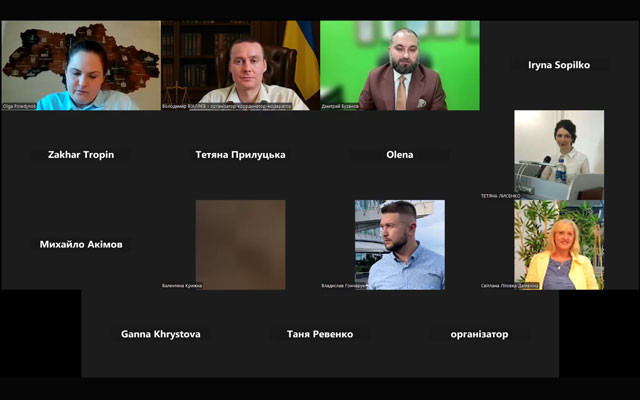
After the decision has been actually enforced (e.g., compensation has been paid), the seizure of property remains in force. This is because courts do not issue separate decisions to lift interim measures. This creates artificial legal uncertainty that restricts property rights.
This was pointed out by Dmytro Buzanov, a member of the human rights Committee of the Ukrainian National Bar Association, during his speech at the VI All-Ukrainian round table «Application of legislation during martial law in Ukraine» held on 30 June.
As an example, he cited a typical case of division of marital property, where the court of first instance granted the application for interim relief and seized the property. After the claim was fully satisfied on appeal and a writ of execution was issued, the plaintiff turned to a private enforcement agent. The debtor, understanding the consequences of the sale of the property, voluntarily paid compensation, and the seizure within the enforcement proceedings was canceled. However, the seizure imposed by the court as a measure to secure the claim remained in force, as a separate court decision was required to lift it.
Neither the court of first instance nor the appellate court took advantage of the opportunity to resolve the issue of lifting the security measures after the decision on the merits was made. As a result, the debtor was forced to separately apply to the court with a corresponding petition. However, despite the five-day period for consideration of such applications, as specified in the Civil Procedure Code, the case was heard for three months, with numerous postponements initiated by the claimant and without reasonable grounds on the part of the court.
In addition, the decision to cancel the interim measures may be appealed. For example, according to the practice of the Kyiv Court of Appeal, this can take up to a year. Thus, even after the decision has been enforced, the debtor cannot use the property for a long time, as it formally remains under arrest. In the speaker's opinion, this violates the balance of interests of the parties and the principles of fair judicial protection.
The speaker also drew attention to the fact that, according to Part 4 of Article 59 of the Law «On Enforcement Proceedings», an arrest imposed as a measure to secure a claim may be lifted by the executor only on the basis of a separate court decision. This means that even if the court decision has been fully enforced, the enforcement officer does not have the authority to lift the seizure imposed by the court order. This creates a conflict, complicates the enforcement of decisions, and violates the rights of a conscientious debtor.
In view of this, D. Buzanov proposed amendments to the CPC and the Law on Enforcement Proceedings:
- automatic termination of measures to secure a claim after full enforcement of a court decision, unless otherwise established by the court (add to part 7 of Article 158 of the CPC);
- establishment of a shortened period for consideration of appeals against rulings on the cancellation of measures to secure a claim — no more than 30 days (amend Article 356 of the Code of Civil Procedure);
- granting enforcement agents the right to lift the seizure in case of documentary confirmation of full enforcement of the decision (add a new paragraph to part 4 of Article 59 of the Law «On Enforcement Proceedings»).
According to the speaker, the implementation of these changes will reduce the period for the release of property from seizure from 6–18 months to 5–10 days, reduce the burden on the judicial system, and eliminate corruption risks associated with deliberate delays in the consideration of cases.
He also emphasized that under martial law, restrictions on property rights even after a decision has been enforced have serious economic consequences. Property that remains under arrest cannot be used for economic activities or household needs. And citizens who have lost part of their income due to the war need their property rights to be restored quickly.
Popular news
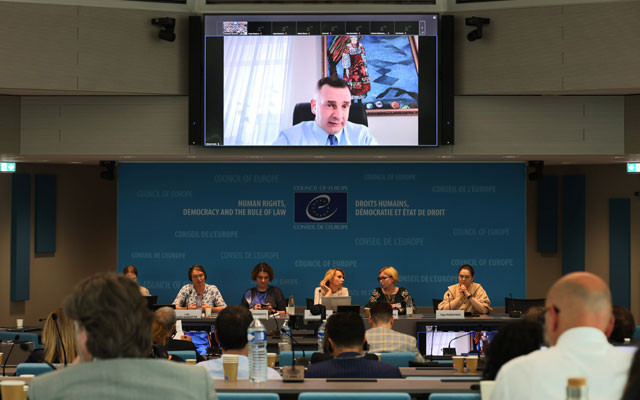
Educational events
Ukrainian advocacy integrates HELP into the system of professional development
In recent years, the Ukrainian National Bar Association has become one of the Council of Europe’s key partners in implementing the HELP programme, an educational project aimed at developing the legal profession through training in European human rights standards.
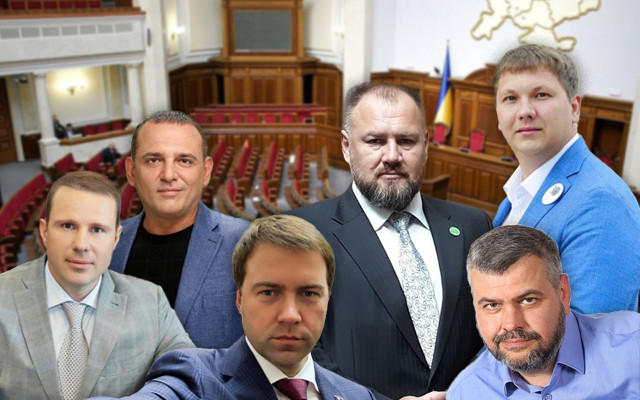
Legislation
Those who equate advocates with clients will be fined – law passed
Public identification of an advocate with a client to whom such advocate provides professional legal assistance will become an administrative offense, and forms of interference in the activities of an advocate, for which liability is provided for in Article 397 of the Criminal Code, are detailed.
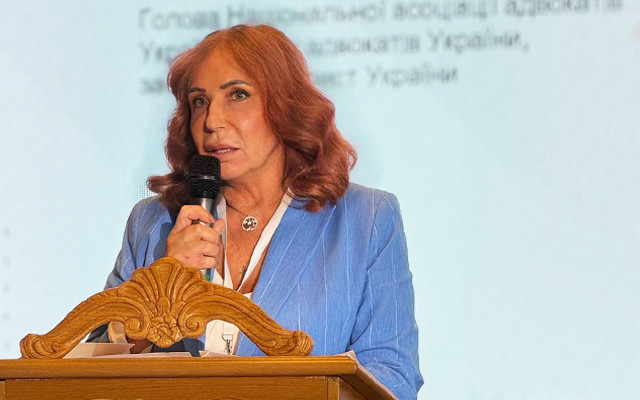
Discussion
Experts have exceptional potential that should be developed jointly — Lidiya Izovitova
The professions of advocate and expert can and must develop by learning from each other, exchanging experience and best practices. Together, we can build a strong, independent, and effective justice system worthy of a European Ukraine.
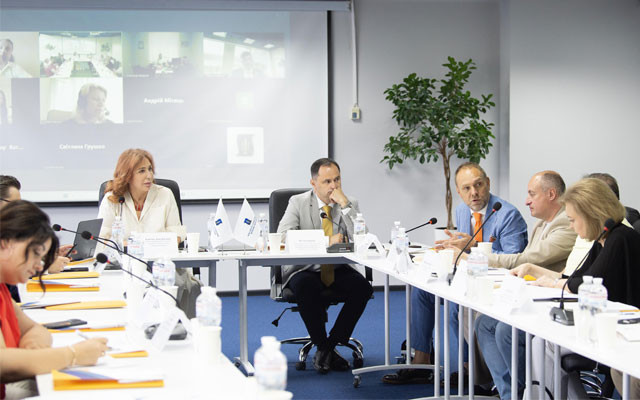
Discussion
Strengthening the country's sovereignty requires a new model for forming the HQCJ – round table
The model of the competition commission for selecting members of the High Qualification Commission of Judges, introduced as an anti-crisis measure, has exhausted itself. The inaction of the HCJ in forming a new composition of the CC, the lack of accountability, and the existing signs of political influence indicate that powers should be transferred directly to the entities responsible for forming the HQCJ as defined by law.
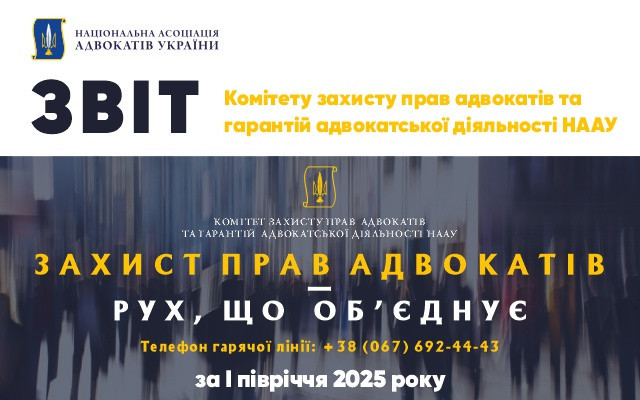
Guarantees of the practice of law
One third of complaints to the UNBA are due to unlawful actions by the TCC
In the first half of 2025, the Committee for the protection of lawyers' rights and guarantees of advocacy of the Ukrainian National Bar Association recorded 46 complaints of violations of professional rights. A third of these concerned unlawful actions by territorial recruitment centers—systematic obstruction of advocacy or violation of the right to defense.
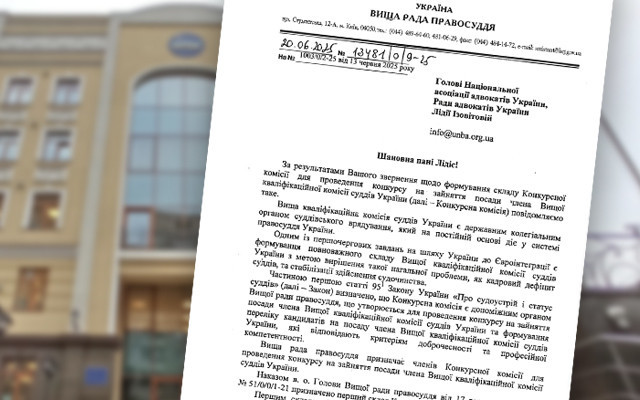
Self-government
The HCJ continues to ignore the legal deadlines for forming the Competition Commission of the HQCJ
The High Council of Justice continues to violate the statutory deadlines for forming a new competition commission to select members of the Competition Commission of the High Qualification Commission of Judges of Ukraine.

Advocacy
UNBA asked the UBA about the facts of the alleged violations of lawyers' rights
The National Bar Association of Ukraine is concerned about information regarding violations of the professional rights of advocates and guarantees of advocacy, which was disseminated on June 16 by the UPO «Ukrainian Bar Association». This issue will be discussed at a meeting of the Bar Council of Ukraine.
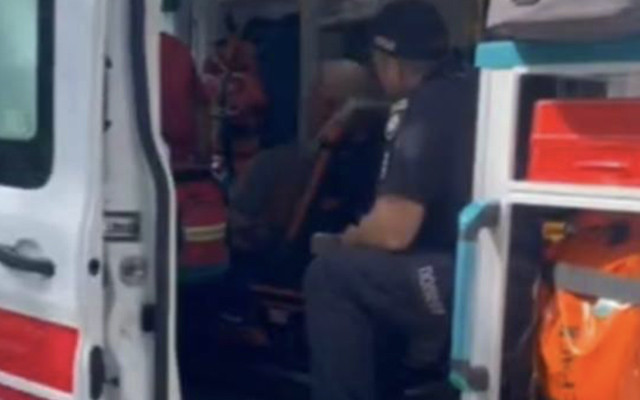
Advocacy
Another conflict with the TCC: an advocate's leg was broken and his client jumped out of a window
On June 19, at the premises of the military medical commission, where a bus from the Krasnograd Territorial Center for Recruitment and Social Support delivered several people, an incident occurred involving the use of physical force against an advocate.
Publications

Ihor Kolesnykov A BRIEF SUMMARY REGARDING THE APPLICATION OF THE ORDER ON EXTENDED CONFISCATION IN LATVIA REGARDING FINANCIAL ASSETS OF…

Valentyn Gvozdiy WORKING IN A WAR ZONE

Lydia Izovitova Formula of perfection

Sergiy Vylkov Our judicial system is so built that courts do not trust advocates

Iryna Vasylyk Advocacy in the proclamation of Independence of Ukraine

Oleksandr DULSKY When we cross the border of the Supreme Anti-Corruption Court, we get into another department of the National Anti-Corruption…

Vadym Krasnyk The UNBA will work, and all obstacles and restrictions are only temporary inconveniences

Lydia Izovitova Interview with Lydia Izovitova on the occasion of the 8th anniversary of the founding of UNBA: We are the voice of t…
